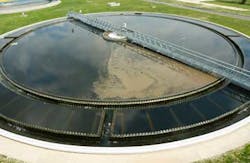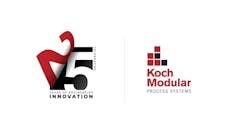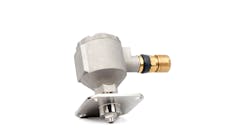The European Commission (EC) has released its seventh report on urban wastewater treatment in the European Union, covering the period 2009/2010. Despite the discrepancies observed among individual member states, the EC notes that the overall picture has improved and things are moving in the right direction.
Among the countries with the highest compliance rates are Austria, Germany and the Netherlands. The Commission also found that newer members of the bloc have achieved progress in overall collection and treatment. This improvement has been facilitated by significant support from the EU.
Commenting on the latest data, Environment Commissioner Janez Potocnik noted that wastewater treatment represented a "fundamental test" for society. It indicates whether we are cleaning our own mess or contaminating the environment that sustains us. It is a relief to see that EU countries are moving in the right direction and the mixture of measures implemented by the EC is paying off for EU citizens. This mix includes financial support and decisive legal action in cases where it is deemed necessary, Potocnik added.
Under the Urban Wastewater Treatment Directive of 1991, EU countries are required to maintain systems for urban wastewater collection and to make sure that the collected water is subjected to appropriate "secondary" treatment. Additional treatment is required for wastewater making its way into sensitive areas, for example bathing sites and drinking water reservoirs. The implementation of this legislation has been carried out with extensive support from cohesion funds and the European Regional Development Fund (ERDF). They provided EUR3.5 billion in 2009 for wastewater infrastructure projects and increased the amount to EUR9.7 billion the following year. Between 2007 and 2013, the EU has contributed around EUR14.3 billion to such projects.
RELATED: European Union to fund desalination plant in northeast Africa
According to the new report, 91% of the pollution load from the 27 EU capital cities is subjected to stricter treatment. This is a marked improvement on the 77% in the previous report. As a result of better treatment and fewer raw sewage discharges, the quality of bathing water has been raised, the publication notes. At the start of the 1990s, excellent quality water was observed at about 60% of bathing sites but the proportion has now grown to 78%.
The data showed that collection rates were very high, reaching 100% for 15 EU countries. All member states had managed to sustain or enhance previous results but Bulgaria, Cyprus, Estonia, Latvia and Slovenia still had compliance rates of under 30%.
In the case of secondary treatment, compliance rates stood at 82%, which translates into an increase of four points. However, the report highlights the massive gap between EU-15 (the longer standing members of the bloc) and EU-12, with countries in the first group achieving rates of 90% to 100% and those in the second managing 39% on average. The overall compliance rate for more stringent treatment stood at 77% but the difference between EU-15 and EU-12 countries remained huge, the latter achieving 14% on average. The report notes that Austria, Germany, Greece and Finland had a 100% compliance rate on that count.
Nearly 75% of EU territory ended up designated as a sensitive area, which represents an increase of two points. The biggest rise was recorded in France and Greece.



